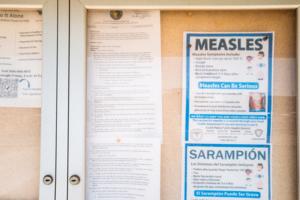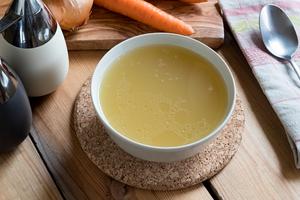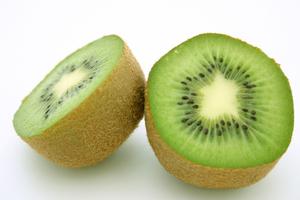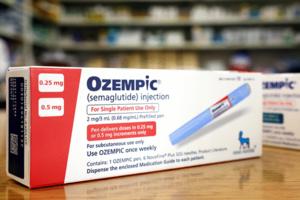Health Advice
/Health

Massachusetts reports first measles cases of year: 'Getting vaccinated is the best way for people to protect themselves'
BOSTON — Bay State health officials have confirmed the first measles cases of the year amid a large national outbreak of the life-threatening virus.
The first case was reported in a school-aged Massachusetts resident who was exposed and diagnosed out-of-state, and remains out of state during the infectious period, according to the state ...Read more

Expert says whether to take antidepressants during pregnancy is a 'risk-risk conversation'
When Sarah Bynum was pregnant with her first child in 2017, her primary care doctor suggested she stop taking her antidepressant.
He told her there wasn’t enough research to justify staying on the medication.
By the time she delivered her daughter, the Delaware County woman’s anxiety was so bad that she decided never again to go through a ...Read more

Mayo Clinic Q&A: Is my racing heart an arrhythmia?
DEAR MAYO CLINIC: I've noticed that sometimes my heart races or skips a beat. What causes this? Is there treatment for it?
ANSWER: What you're experiencing may be an abnormal heart rhythm, also known as an arrhythmia. Arrhythmias fall into two categories: too fast or too slow. A racing heart or a skipped beat typically falls into the "too fast"...Read more

10 cases of measles already reported in Minnesota this year
MINNEAPOLIS — Minnesota has reported 10 measles cases so far in 2026 amid a declining vaccination rate that’s left more people vulnerable to the highly infectious disease and its characteristic head-to-toe rash.
The case cluster is raising concerns when considering that Minnesota had 26 infections in total last year. All 10 people were ...Read more

California rolled back Medi-Cal for undocumented people. Fresno legislator's bill seeks change
FRESNO, Calif. — A new California bill co-authored by a Fresno-area legislator intends to reopen Medi-Cal applications for undocumented adults who lost access to the program because of cuts made to the state’s budget last year.
The Medical Access Restoration Act, known as SB 1422, would end the Medi-Cal enrollment freeze that took effect ...Read more

Fewer new moms are dying in Colorado – naloxone might be one reason why
In Colorado, from 2016 to 2020, 33 women who were pregnant or had recently given birth died from accidental overdoses. That’s more than died from traditional obstetric complications like infection, high blood pressure or bleeding combined.
More recent data shows an encouraging turnaround. The number of maternal overdose deaths ...Read more

Some states are helping to make Obamacare plans more affordable
Ten Democratic-leaning states are using their own money to help people buy Obamacare health plans, at least partially replacing the federal tax credits that expired at the end of last year.
The state assistance, some of it offered through programs that existed before the federal subsidies expired, is helping hundreds of thousands of people ...Read more

As more Americans embrace anxiety treatment, MAHA derides medications
After a grueling year of chemotherapy, surgery, and radiation to treat breast cancer, Sadia Zapp was anxious — not the manageable hum that had long been part of her life, but something deeper, more distracting.
“Every little ache, like my knee hurts,” she said, made her worry that “this is the end of the road for me.”
So Zapp, a 40-...Read more

3 things to know about cancer and your heart: Mayo Clinic expert shares tips to reduce risk
ROCHESTER, Minn. — As cancer therapies improve and increasingly achieve cures or recurring periods of remission, preventing and managing damage to organs from cancer treatment has become a top concern. That includes injury to the heart, says Joerg Herrmann, M.D., a cardiologist and the founder and director of the Cardio-Oncology Clinic at Mayo...Read more

When it comes to health insurance, federal dollars support more than ACA plans
Subsidies. Love ’em or hate them, they dominated the news during the Affordable Care Act’s sign-up season, and their reduction is now hitting many enrollees in the pocketbook.
While lawmakers continue to disagree on a way forward, and the politics of affordability keeps the issue front and center, it would be understandable to think these ...Read more

Pittsburgh nurses are fighting for better staffing ratios — and the research backs them up
Since nursing contract negotiations heated up in January 2026 at UPMC Magee-Womens Hospital in Pittsburgh and at UPMC Altoona, the debate shifted from standard wage disputes to a more fundamental question of patient safety: the nurse-to-patient ratio.
The New York State Nurses Association’s approach has become a primary blueprint ...Read more

Editorial: After a year of RFK Jr.'s policies, vaccination rates are down, measles cases are up, and public health hangs in the balance
Almost 250 years ago, George Washington created America’s first mass immunization mandate, relying on science to protect public health.
Oh, how times have changed.
Back then, smallpox had just helped end the Continental Army’s invasion of Canada. Despite making it all the way to Quebec, thousands of soldiers contracted the disease. ...Read more

Florida uses emergency rule to cut patients off AIDS medication
TALLAHASSEE, Fla. — Florida’s Department of Health is using emergency rules to cut about 12,000 people off from affordable access to their HIV/AIDS medication starting Sunday.
The Department’s emergency rules were filed Tuesday, one day ahead of a hearing in a legal challenge to the state over changes to the AIDS Drug Assistance Program. ...Read more

Environmental Nutrition: ‘Fibermaxxing’ Explained
In the ever-evolving world of health and wellness, a new trend is gaining attention for its bold approach to digestive health: fibermaxxing. This practice involves significantly increasing dietary fiber intake — sometimes well beyond standard recommended levels — in pursuit of benefits like improved digestion, weight management, and overall ...Read more

Savoring the benefits of bone broth
If you’ve been to the soup section of the supermarket lately, you’ve probably noticed that bone broths are crowding the shelves. These savory broths are having a moment, especially among those following paleo, keto, or other trendy low-carb diets.
What is bone broth?
At its simplest, bone broth is made by simmering animal bones (usually ...Read more

Can you eat kiwi skin?
Sweet, refreshing, and loaded with health benefits, kiwis pack a lot into a small package. But can you eat kiwi skin? While you might be used to peeling off the fuzzy brown skin of kiwi fruit with a paring knife, vegetable peeler, or spoon, you don't actually need to. Kiwi skin is, in fact, edible — and it’s good for you too.
There’s more...Read more

Mayo Clinic Q&A: Men: Don’t blow off those health screening reminders
DEAR MAYO CLINIC: I just turned 45, and I think guys my age are due for some health screenings. Which ones should I prioritize, and how often should I get them?
ANSWER: Congratulations for getting these important health checks on your radar. Historically, men have been hesitant to seek medical attention when something seems wrong with their ...Read more

Mayo Clinic Q&A: What is pulsed field ablation?
DEAR MAYO CLINIC: I have atrial fibrillation, and I've heard there's a new kind of ablation that could relieve my symptoms. Can you tell me about it?
ANSWER: If you have atrial fibrillation (AFib), you're not alone — it's the most common heart rhythm disorder, affecting millions around the world. AFib occurs when the heart's upper chambers ...Read more

Should drug companies be advertising to consumers?
Tamar Abrams had a lousy couple of years in 2022 and ’23. Both her parents died; a relationship ended; she retired from communications consulting. She moved from Arlington, Virginia, to Warren, Rhode Island, where she knew all of two people.
“I was kind of a mess,” recalled Abrams, 69. Trying to cope, “I was eating myself into oblivion....Read more

State lawmakers seek restraints on wage garnishment for medical debt
Lawmakers in at least eight states this year are aiming to reel in wage garnishment for unpaid medical bills.
The legislation introduced in Colorado, Florida, Hawaii, Indiana, Maine, Michigan, Ohio, and Washington builds on efforts made in other states in past years. This latest push for patient protections comes as the Trump administration has...Read more
Popular Stories
- Mayo Clinic Q&A: Is my racing heart an arrhythmia?
- Expert says whether to take antidepressants during pregnancy is a 'risk-risk conversation'
- California rolled back Medi-Cal for undocumented people. Fresno legislator's bill seeks change
- 10 cases of measles already reported in Minnesota this year
- 3 things to know about cancer and your heart: Mayo Clinic expert shares tips to reduce risk








